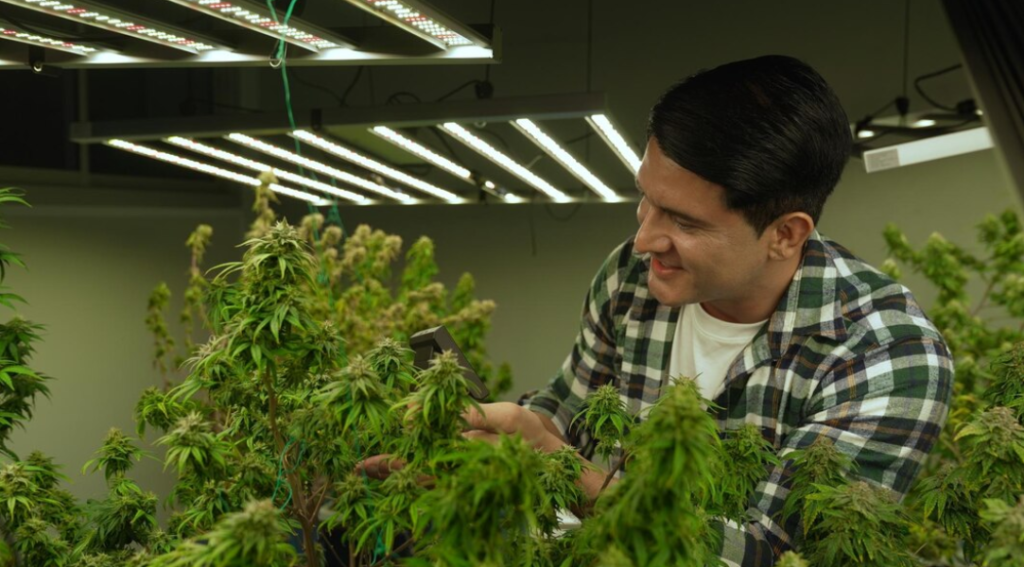What is Industrial Hemp?
Industrial hemp, commonly known as hemp or agricultural hemp, is a plant species of the Cannabis sativa genus. Unlike marijuana, industrial hemp is produced and grown primarily for industrial purposes, and it has very low quantities of the psychotropic chemical THC (tetrahydrocannabinol). To be legal in most nations, including the United States, hemp must have less than 0.3% THC by dry weight.
Industrial hemp has been used for thousands of years for a variety of uses. Its fibrous stalks, seeds, and oil-rich blooms are prized. Here are some amazing and unique properties of industrial hemp:
- Fibrous strength: Hemp fibers are particularly robust and long-lasting. They have a high tensile strength, which means they can sustain large pulling pressures without breaking. Because of this feature, hemp fibers are useful for a wide range of textile applications, including garments, ropes, and long-lasting materials.
- Moisture Absorption: Hemp fibers are good at absorbing and wicking moisture. They can absorb moisture without becoming damp, keeping the cloth dry and pleasant even in humid situations. This feature is very useful in athletic clothes and fabrics used for outdoor activities.
- Breathability: Hemp materials are well-known for their breathability. The porosity structure of hemp fibers allows air to circulate freely, improving comfort and decreasing heat and perspiration accumulation. As a result, hemp fabrics are a popular choice for summer apparel and bedding.
- Natural antibacterial and Antifungal capabilities: Hemp fibers have antibacterial and antifungal capabilities. Because hemp fabrics are resistant to mold, mildew, and bacterial development, they are less prone to odors and degeneration caused by microbial activity. This property is beneficial in applications like clothes, upholstery, and bedding.
- Environmental Sustainability: Hemp is regarded as an environmentally beneficial crop. In comparison to many other crops, it requires fewer pesticides, herbicides, and water. The deep roots of hemp plants serve to reduce soil erosion and increase soil health. Furthermore, hemp absorbs a huge quantity of CO2 from the atmosphere, assisting in carbon sequestration.
- Nutritional value: Hemp seeds are a high-nutritional-value source of vital fatty acids (such as omega-3 and omega-6), proteins, vitamins, and minerals. They also have a low saturated fat content. Hemp seed oil is well-known for its nutritional profile and is utilized in a variety of culinary and dietary applications.
- Cannabinoid content: Industrial hemp includes a variety of cannabinoids, including cannabidiol (CBD). While industrial hemp normally has modest quantities of THC, it can also contain considerable amounts of CBD. CBD is desired for its possible medicinal effects and is included in a variety of health and wellness products.
These features add to industrial hemp’s adaptability and usefulness, making it a viable resource for a variety of sectors. Due to its various applications and the rising acceptability of cannabis-related goods, industrial hemp has attracted fresh interest in recent years. Many nations’ legalization of hemp growing has encouraged research, development, and commercialization of hemp-based goods in a variety of sectors.
What can industrial hemp be used for?
Industrial hemp has several applications in a variety of industries. Here are some of the most common industrial hemp applications:
- Fiber and Textiles: Hemp fiber and textiles are robust, durable, and mold and mildew resistant. They may be used to make garments, bed linens, towels, and upholstery, among other things. Hemp materials are well-known for their breathability, moisture-wicking capabilities, and long-lasting sturdiness.
- Paper and packaging: Hemp fibers may be converted into pulp and used to make paper. Hemp paper is noted for its strength and durability, and it may be used in printing, stationery, packaging, and specialty papers such as cigarette paper and tea bags.
- Building Materials: Hemp fibers may be blended with lime and other natural binders to form hempcrete, a sustainable building material. Hempcrete is a lightweight, insulating material with exceptional thermal and acoustic qualities. It’s used to build things like walls, floors, and roofs.
- Biofuels: Hemp seeds may be pressed to extract oil, which can then be used to make biofuels such as biodiesel. Hemp biodiesel is an environmentally beneficial and renewable alternative to fossil fuels.
- Food and Beverages: Hemp seeds are abundant in nutrients and may be eaten. They include a high concentration of protein, vital fatty acids, vitamins, and minerals. Raw hemp seeds sprouted hemp seeds, and ground hemp flour are all options. They are found in granola bars, protein powders, baking components, and nondairy milk replacements, among other things.
- Health and Wellness products: CBD (cannabidiol) extracted from hemp is utilized in a variety of health and wellness products, including CBD oils, tinctures, capsules, sweets, topicals, and more. CBD is thought to have medicinal effects and is utilized for pain relief, relaxation, and other health purposes.
Conclusion
Finally, industrial hemp is a cultivar of the Cannabis sativa plant that is grown for its numerous uses in a range of industries. It differs from marijuana in that it has less THC, the euphoric component. Industrial hemp has a long history of use and provides a variety of benefits.
Hemp fibers are robust and long lasting, making them perfect for textile production, papermaking, and building components. Hemp seeds are abundant in nutrients and may be eaten or used to extract oil. CBD extracted from hemp is utilized in health and wellness products because of its possible medicinal effects. Furthermore, industrial hemp provides environmental benefits, including using fewer pesticides and herbicides and promoting soil health.
The legalization of hemp growing in several nations has created prospects for hemp-based product research, development, and commercialization. Industrial hemp is finding new applications in a variety of industries, from textiles and construction to food and drinks, biofuels, and animal feed, as public knowledge of its benefits develops.
Overall, industrial hemp is a valuable and sustainable resource with tremendous economic, environmental, and health-related possibilities.


Pingback: 16 Hemp Or Cannabis Myths Explained - NAP Limited
Pingback: NAP Limited - Rebuilding a Fresh Ecosystem for Himalayas Hemp